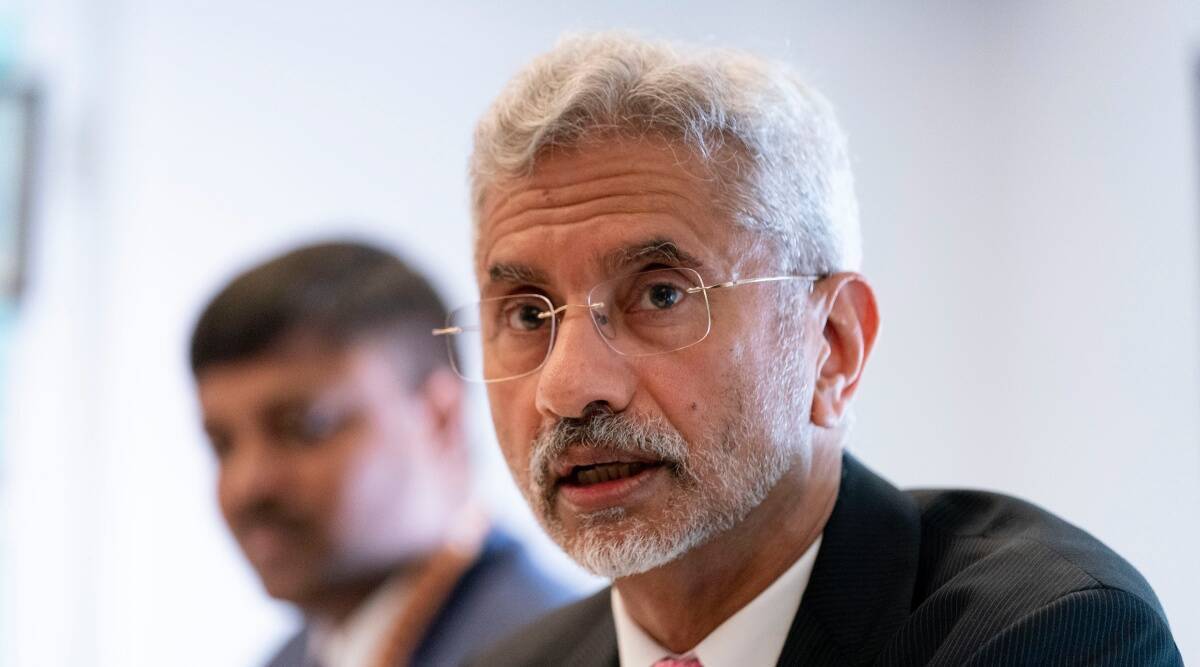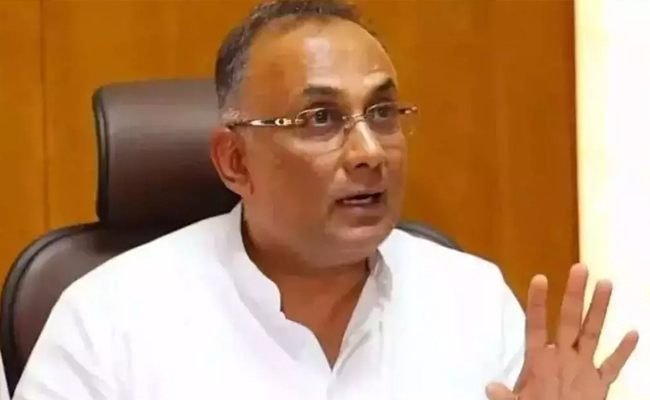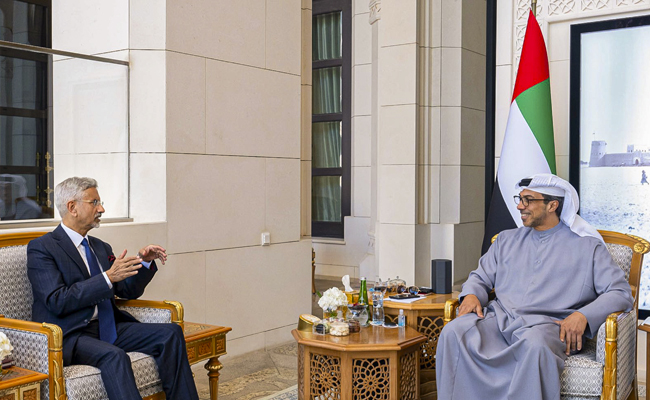Beijing, Aug 19: China on Friday concurred with External Affairs Minister S Jaishankar's observation that an Asian Century cannot happen if India and China don't join hands and emphasised that the two neighbouring countries have "far more common interests than differences."
Responding to a series of questions after delivering a lecture on 'India's Vision of the Indo-Pacific' at the prestigious Chulalongkorn University in Bangkok on Thursday, Jaishankar said the relationship between India and China was going through an "extremely difficult phase" after what Beijing had done at the border and emphasised that the Asian Century would not happen if the two neighbours could not join hands.
The troops of China and India are engaged in a prolonged standoff in eastern Ladakh. The two sides have so far held 16 rounds of Corps Commander Level talks to resolve the standoff which erupted on May 5, 2020, following a violent clash in the Pangong Lake areas.
India has been consistently maintaining that peace and tranquillity along the Line of Actual Control (LAC) were key for the overall development of bilateral ties.
Asked for his reaction to Jaishankar's comments, Chinese Foreign Ministry spokesman Wang Wenbin told a media briefing here that "as a Chinese leader put it, "Unless China and India are developed, there will be no Asian Century. No genuine Asia-Pacific Century or Asian Century can come until China, India and other neighbouring countries are developed."
"China and India are two ancient civilisations, two major emerging economies and two neighbouring countries, we have far more common interests than differences. Both sides have the wisdom and capability to help each other succeed instead of undercutting each other," he said.
To a question on whether China will hold talks with India on the disengagement at the remaining friction points in eastern Ladakh, Wang said, "China and India maintain smooth communication over the boundary question. And our dialogue is effective."
He expressed the hope that India will work with China to act upon the important common understandings between the leaders of the two countries, i.e. "China and India are not each other's threats, but cooperation partners and development opportunities, bring China-India relations back to the track of steady and sound development at an early date and safeguard the common interests of China, India and our fellow developing countries," Wang said.
Commenting on Jaishankar's Asian Century remarks, Qian Feng, director of the research department at the National Strategy Institute at Tsinghua University here, told the state-run Global Times newspaper that the expression "Asian Century" has served as a driving force for China and India to normalise and strengthen their relations since 1988, and India's External Affairs Minister's use of the term in stressing the need for a friendly bilateral relationship is worth praising.
The expression "Asian Century" was first used by former Chinese leader Deng Xiaoping. In 1988, when he met with then Indian prime minister Rajiv Gandhi, he pointed out that unless the two countries [China and India] are developed, there will be no Asian Century, Qian said.
Meanwhile, on Jaishankar's remarks on reservations to the Quad alliance, apparently from China, the foreign ministry spokesman reiterated China's objection to the four-nation bloc comprising India, the US, Japan and Australia.
"Our position on Quad is consistent and clear. I would like to reiterate that in today's world, building exclusive groups is against the trend of the times and will not get any support or get anywhere," he said.
In an apparent reference to China's opposition to Quad, Jaishankar, without naming any country, had said that "if there are reservations in any quarter, these stem from a desire to exercise a veto on the choices of others. And possibly a unilateralist opposition to a collective and cooperative endeavours".
The Quad or Quadrilateral Security Dialogue was set up in 2017 amidst China's aggressive behaviour in the strategic Indo-Pacific region.
Let the Truth be known. If you read VB and like VB, please be a VB Supporter and Help us deliver the Truth to one and all.
New Delhi: A bill to set up a 13-member body to regulate institutions of higher education was introduced in the Lok Sabha on Monday.
Union Education Minister Dharmendra Pradhan introduced the Viksit Bharat Shiksha Adhishthan Bill, which seeks to establish an overarching higher education commission along with three councils for regulation, accreditation, and ensuring academic standards for universities and higher education institutions in India.
Meanwhile, the move drew strong opposition, with members warning that it could weaken institutional autonomy and result in excessive centralisation of higher education in India.
The Viksit Bharat Shiksha Adhishthan Bill, 2025, earlier known as the Higher Education Council of India (HECI) Bill, has been introduced in line with the National Education Policy (NEP) 2020.
The proposed legislation seeks to merge three existing regulatory bodies, the University Grants Commission (UGC), the All India Council for Technical Education (AICTE), and the National Council for Teacher Education (NCTE), into a single unified body called the Viksit Bharat Shiksha Adhishthan.
At present, the UGC regulates non-technical higher education institutions, the AICTE oversees technical education, and the NCTE governs teacher education in India.
Under the proposed framework, the new commission will function through three separate councils responsible for regulation, accreditation, and the maintenance of academic standards across universities and higher education institutions in the country.
According to the Bill, the present challenges faced by higher educational institutions due to the multiplicity of regulators having non-harmonised regulatory approval protocols will be done away with.
The higher education commission, which will be headed by a chairperson appointed by the President of India, will cover all central universities and colleges under it, institutes of national importance functioning under the administrative purview of the Ministry of Education, including IITs, NITs, IISc, IISERs, IIMs, and IIITs.
At present, IITs and IIMs are not regulated by the University Grants Commission (UGC).
Government to refer bill to JPC; Oppn slams it
The government has expressed its willingness to refer it to a joint committee after several members of the Lok Sabha expressed strong opposition to the Bill, stating that they were not given time to study its provisions.
Responding to the opposition, Parliamentary Affairs Minister Kiren Rijiju said the government intends to refer the Bill to a Joint Parliamentary Committee (JPC) for detailed examination.
Congress Lok Sabha MP Manish Tewari warned that the Bill could result in “excessive centralisation” of higher education. He argued that the proposed law violates the constitutional division of legislative powers between the Union and the states.
According to him, the Bill goes beyond setting academic standards and intrudes into areas such as administration, affiliation, and the establishment and closure of university campuses. These matters, he said, fall under Entry 25 of the Concurrent List and Entry 32 of the State List, which cover the incorporation and regulation of state universities.
Tewari further stated that the Bill suffers from “excessive delegation of legislative power” to the proposed commission. He pointed out that crucial aspects such as accreditation frameworks, degree-granting powers, penalties, institutional autonomy, and even the supersession of institutions are left to be decided through rules, regulations, and executive directions. He argued that this amounts to a violation of established constitutional principles governing delegated legislation.
Under the Bill, the regulatory council will have the power to impose heavy penalties on higher education institutions for violating provisions of the Act or related rules. Penalties range from ₹10 lakh to ₹75 lakh for repeated violations, while establishing an institution without approval from the commission or the state government could attract a fine of up to ₹2 crore.
Concerns were also raised by members from southern states over the Hindi nomenclature of the Bill. N.K. Premachandran, an MP from the Revolutionary Socialist Party representing Kollam in Kerala, said even the name of the Bill was difficult to pronounce.
He pointed out that under Article 348 of the Constitution, the text of any Bill introduced in Parliament must be in English unless Parliament decides otherwise.
DMK MP T.M. Selvaganapathy also criticised the government for naming laws and schemes only in Hindi. He said the Constitution clearly mandates that the nomenclature of a Bill should be in English so that citizens across the country can understand its intent.
Congress MP S. Jothimani from Tamil Nadu’s Karur constituency described the Bill as another attempt to impose Hindi and termed it “an attack on federalism.”



_vb_22.jpeg)

